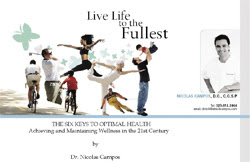 A reader asked my opinion on grief and how it affects health. I though it would be a great topic for a blog post, so here goes:
A reader asked my opinion on grief and how it affects health. I though it would be a great topic for a blog post, so here goes:
Since we cannot separate the mind from the body, any charged (let alone hyper-charged) emotion that goes unresolved will affect the health. Let’s look at the definition of grief: keen mental suffering or distress overaffliction or loss; sharp sorrow; painful regret.
Most people grieve when they feel they have lost something–a loved one, whether person or pet, a possession (like a house), or for some people even losing face. The sense of loss is so deep it can consume the mind for weeks, months or years. This mental anguish can be so intense that all experiences become bathed in the sorrow that the person has over the loss.
 What’s important for people to connect with in these situations is that, in the whole of the universe, there is no gain or loss. Let’s take the seeming loss of a loved one, for instance. Einstein showed that mass and energy are equivalent (represented by the equation E=mc²). Essentially, all matter and energy are interchangeable, which in practical terms for humans signifies that we, too, are simply energy.
What’s important for people to connect with in these situations is that, in the whole of the universe, there is no gain or loss. Let’s take the seeming loss of a loved one, for instance. Einstein showed that mass and energy are equivalent (represented by the equation E=mc²). Essentially, all matter and energy are interchangeable, which in practical terms for humans signifies that we, too, are simply energy.
The first law of thermodynamics states that energy can neither be created nor destroyed; it is called the law of conservation of energy. Energy can only change from one form to another. A simple example: pour ice cubes into heating pot and they will change their state from solid to liquid (changing energy form); keep observing and the liquid water will turn to steam and evaporate. Does this mean the particles making up the ice cubes is gone? No, it has changed form from a solid to a liquid to gas (the steam), and will disperse throughout the room. It could even be used to power an engine (energy in motion).

Why am I talking physics with regard to grief? Because the same is true of living things. We die, but our energy isn’t gone–it transforms. Here is the beauty in this truth: it corresponds with nearly every spiritual teaching. Whether you believe in heaven or Valhalla–there is no denying that the energy of the deceased person is not gone. Even for the secularist, all one must remember is the law of conservation of energy: Energy cannot be created nor destroyed. Think about that. More to come.












